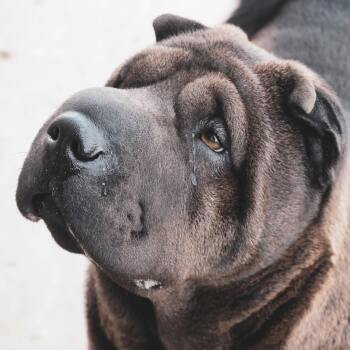Chinese Shar-Peis

A Breed Steeped in Loyalty and Dignity
Known for their iconic wrinkles, watchful eyes, and deeply loyal nature, the Chinese Shar-Pei is a fascinating mix of calm confidence and unwavering devotion. If you're considering adding one of these ancient protectors to your family—or already share your home with one—here’s everything you need to know about what makes them such a special companion.
What We Love About Shar-Peis
- Quiet and Calm: These dogs are generally quiet, making them excellent companions for more peaceful households.
- Independent Spirits: Shar-Peis are confident and capable of entertaining themselves—no need for constant attention.
- Natural Protectors: They’re deeply loyal and protective, making them fantastic watchdogs.
- Smart and Trainable: While independent, they’re also intelligent and respond well to clear, consistent training.
- Low-Maintenance Grooming: Despite their wrinkles, Shar-Peis are surprisingly easy to care for when it comes to grooming.
A Few Quirks to Consider
- Strong-Willed: You’ll need to establish leadership early, as this breed has an independent mindset.
- Territorial Instincts: They can be wary of strangers and other dogs without proper socialization.
- Breathing Sounds: Snorts, wheezes, and even snoring are all part of the Shar-Pei soundtrack.
- Skin Fold Maintenance: Their wrinkles are adorable but can be prone to infection if not kept clean.
- Can Be Overprotective: They form strong bonds and may act standoffish toward unfamiliar people or pets.
A Look Back in Time
The Chinese Shar-Pei is an ancient breed dating back over 2,000 years. Originally bred for guarding, fighting, and farming in rural China, these dogs were designed to be versatile, self-sufficient, and tough. Their blue-black tongue is a signature feature, shared only with the Chow Chow.
Health & Lifespan
With an average lifespan of 8–12 years, Shar-Peis are generally healthy but can be prone to some breed-specific issues. Regular veterinary care, early diagnostics, and preventive treatment can go a long way toward keeping your Shar-Pei happy and comfortable.
Genetic Health Concerns in Shar-Peis
- Bloat (Gastric Dilatation and Volvulus)— A life-threatening emergency where the stomach twists and fills with gas. Symptoms include retching, restlessness, and abdominal swelling. Preventive surgery may be recommended.
- Allergies (Atopy)— Commonly causes itchy skin—especially around the feet, belly, and ears. There are a variety of treatments available to keep symptoms under control.
- Eye Conditions:
-
Glaucoma— Painful and fast-progressing; may lead to blindness if not treated quickly.
-
Entropion— Inward-rolling eyelids that cause irritation—often requires surgery.
-
Cherry Eye— A prolapsed tear gland common in puppies; may also require surgery.
Routine eye exams are key!
-
-
Patellar Luxation— Kneecap slips out of place. May cause skipping or hopping—treatable with arthritis meds or surgery.
-
Hip & Elbow Dysplasia— Affects joint formation and can lead to arthritis. Watch for stiffness or limping—early treatment is critical.
-
Amyloidosis— Shar-Peis are more prone to this protein-deposit condition, which affects organs like the kidneys and liver. Symptoms include vomiting, weight loss, and appetite changes.
-
Inflammatory Bowel Disease (IBD)— Leads to chronic vomiting or diarrhea and impacts nutrient absorption. Managed with diet, medication, and sometimes long-term care.
-
Respiratory Distress Syndrome (Brachycephalic Syndrome)— Due to their short snouts, some Shar-Peis struggle with breathing. Signs include loud breathing or fainting—severe cases may require surgery.
-
Megaesophagus— Esophagus fails to push food to the stomach. Look out for regurgitation of undigested food. Diagnosed with X-rays, managed with special feeding routines.
-
Seborrhea— Affects skin and coat—can be dry and flaky or greasy and smelly. Often tied to other health issues like hypothyroidism or allergies.
-
Mange— Caused by an overgrowth of Demodex mites—leads to hair loss, especially on the face and feet. Some dogs grow out of it; others need ongoing care.
-
Skin Infections (Lip-Fold Pyoderma)— Moisture trapped in skin folds can lead to infection. Regular cleaning and, in some cases, antibiotics or surgery are necessary.
-
Eosinophilic Panosteitis— “Growing pains” that cause limping and leg pain in young dogs. Usually temporary and manageable with pain relief.
-
Vitamin B12 Deficiency— Affects nutrient absorption and energy. Lifelong injections are usually required once diagnosed.
-
Hemophilia— A blood clotting disorder that must be screened for before any surgeries or major injuries.
-
Mast Cell Tumors— A form of skin cancer more common in Shar-Peis. Any new lumps or bumps should be checked immediately.
The Bottom Line
Chinese Shar-Peis are noble, independent, and deeply loyal companions who thrive in homes that respect their unique traits. With proper socialization, leadership, and health monitoring, they become affectionate guardians and intelligent members of the family.
Ready to Learn More? We’re Here to Help!


